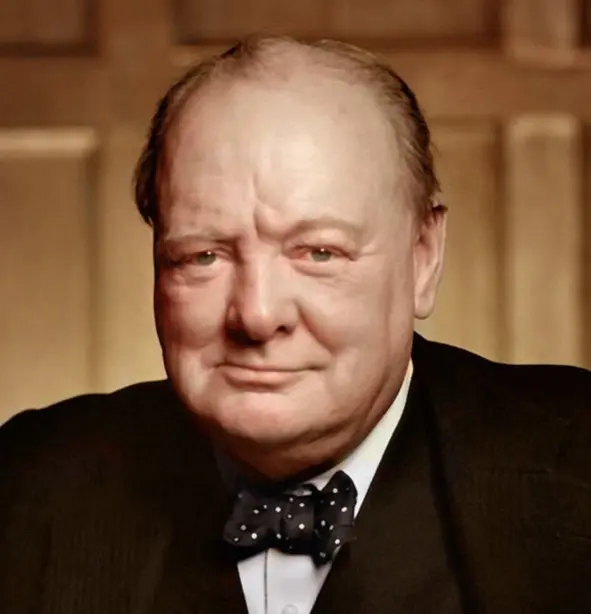"My daily routine: in bed until 11.00, an hour of sleep after lunch, alcohol and cigars all day. So I beat Hitler!"
British nobleman, statesman, politician, soldier, journalist, writer, painter, historian, great orator, lover of cigars and Scotch, Nobel Prize winner for literature, Sir Winston Leonard Spencer-Churchillwhose 150th anniversary we are now commemorating.
He is considered one of the most important statesmen of the 20th century, a fighter against fascism and a defender of liberal democracy. From the beginning, he rejected the Munich Agreement and other concessions to Hitler. He was at the head of the UK government during the Battle of Britain and as one of the main Allied leaders during the Second World War he was instrumental in the defeat of Nazi Germany. He also made a significant contribution to the recognition of Benes's government in exile and gave it sanctuary in Britain. After the war, he was a supporter of European integration, was one of the proponents of the Versailles peace system, and it was on his initiative that the Council of Europe was founded in 1949.
However, he is also seen as a controversial figure, a defender of imperialism and racism who achieved his goals through indiscriminate means. He has been associated with war crimes such as the Bengal famine, criticised for the poorly planned Gallipoli landings during the First World War and for the decision to bomb Dresden in February 1945, not to mention the planned, but fortunately not implemented, Operation Vegetarian, in which he wanted to poison German cattle with anthrax in order to starve the enemy. Because of his many intolerant and racist statements, he would probably have to resign today.
He was born on 30 November 1874 at Blenheim Castle, near Oxford, the grandson of the 7th Duke of Marlborough. His father, Lord Randolph Churchill, was a prominent Conservative Party politician, Chancellor of the Exchequer and Secretary of State for India in the 1880s, but also a somewhat erratic and controversial figure - a trait his son inherited from him in spades. His mother, Lady Jennie, was the daughter of an American merchant. Winston adored her, but she did not show him much love, and he spent his childhood with a nanny, as was customary in the upper classes at the time.
At the age of seven, he was sent to the elite St. James School in Hagerstown, where he contracted severe pneumonia, an illness that would follow him throughout his life. In 1895 he successfully completed his studies at the Royal Military Academy at Sandhurst. In the following years he took part as an officer in several military operations in Cuba, India, the Sudan and South Africa. At the same time he completed his education in classical philosophy and other humanities.
When the Second Boer War broke out in South Africa in 1899, Churchill was there as a correspondent for the Morning Post. When a British armoured train was ambushed, he was captured and imprisoned. He managed to escape from prison in Pretoria and secretly travelled 500 km by train to Portuguese Mozambique, from where he made his way home. This adventure made him a national hero and marked the beginning of a long political career. In October 1900 he was elected to the House of Commons of the United Kingdom Parliament as a Conservative MP. Because of disagreements, he switched to the Liberals in 1904, with whom he continued his political association until 1924, when he again joined the Conservatives.
In 1908 he first joined the government as Minister of Commerce, and in September of that year married Clementine Hozier, a poor aristocrat who earned her living by teaching French, in whom he gained not only a faithful lifelong partner, but also an assistant and political opponent. It was often she who dissuaded him from the most radical political decisions. Churchill himself declared that victory in World War II "would be impossible without it". They lived together for 57 years and had five children, a son and four daughters. Lady Clementine was a life member of the House of Lords.
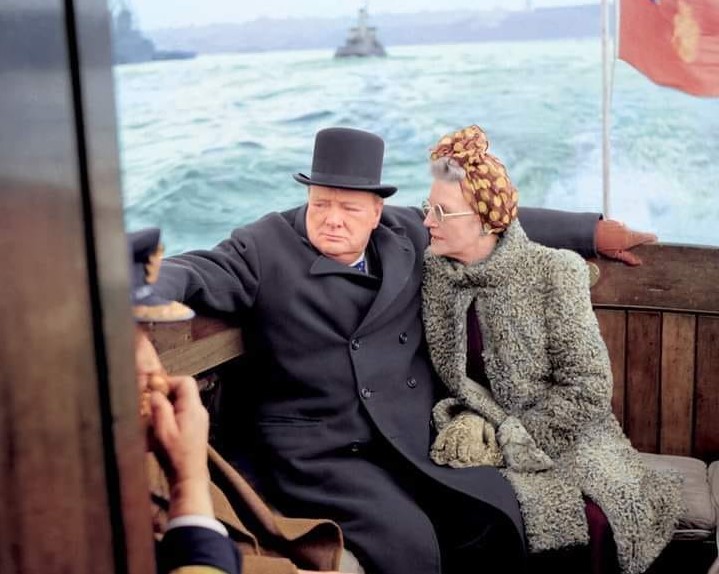
From 1911-1915 Churchill served as Secretary of the Navy. During the First World War, he had the idea to have vehicles on tracks made - the first tanks. The first time they rode in the Battle of the Somme, and the German soldiers fled from the "devil's chariots". He also devised an unsuccessful plan to take the Ottoman Empire out of the war by landing troops at Gallipoli in the Dardanelles, which ended in failure, leading to his dismissal as minister.
He did not return to the executive until 1917, when his ally Lloyd George became prime minister. Churchill was famous for his hatred of communism. After the October Revolution in Russia, he suggested that Britain should invade Russia because "Bolshevism must be strangled in its cradle". After the end of the First World War, he opposed the dissolution of the Habsburg monarchy on the basis of the Treaty of Trianon.
He served as Minister for the Colonies from 1921 to 1922, and was instrumental in ending the Irish War of Independence by sending the infamous Black and Tans to Ireland. From 1924 to 1929 he was Minister for Finance. After Labour's victory in the 1929 election, he served ten years in opposition.
In the 1930s, he was one of the greatest opponents of German Nazism and Italian Fascism, publicly criticising the foreign policy of Neville Chamberlain's Conservative government. He strongly condemned the Italian aggression against Abyssinia (1935-1936), and after the Munich Agreement was signed, he declared: "England had a choice between war and disgrace; she chose disgrace and she will have war."
After the outbreak of the Second World War he was appointed Minister of the Navy in the War Cabinet and, after Chamberlain's resignation in May 1940, became Prime Minister (the choice being between him and Lord Halifax) and made a famous speech in the House of Commons in which he said: "I can promise you nothing but blood, toil, tears and sweat... but they promise you one thing, we will win this war!"
He made important decisions, kick-starting the war industry, especially aircraft production, to ensure that Britain was able to resist German air raids. At this stage of the war, Britain was virtually alone in its fight against Germany, and it was Churchill's persistence, determination and organisational skills that averted its downfall. During 1941, an anti-Nazi war coalition consisting of Britain, the US and the Soviet Union was formed and gradually gained overwhelming superiority over the enemy.
In British India, the independence movement, which Churchill had opposed from the start, was growing at that time. In 1942, the British government sent the so-called Cripps Mission there to enlist the support of local nationalists in exchange for a promise of Indian independence no later than the end of the war. The Indian National Congress, however, demanded the immediate withdrawal of the British from India. There were mass arrests of tens of thousands of its leaders and mass demonstrations. Churchill said in the wake of the events: "I hate Indy. They're a bestial people with a bestial religion."
When the Japanese took over British Singapore and rice supplies stopped flowing to India, famine broke out in Bengal. But the supplies available to the Indian administration were ordered by Churchill to be sent to British troops in the Mediterranean and Yugoslavia. As a result, 2.5 million people starved to death in India in 1943. According to Churchill, this was their own fault because "multiplied like rabbits". When he was informed of the famine, he reportedly only remarked: "If there is famine, why hasn't Gandhi died yet?"
From his position as British prime minister, Churchill attended all the key Allied negotiations on the post-war settlement of Europe, the conferences at Tehran, Yalta and Potsdam, where the future borders of Europe and Asia were decided. Churchill was convinced that the only way to ease tensions between nations was to create borders that respected national boundaries.
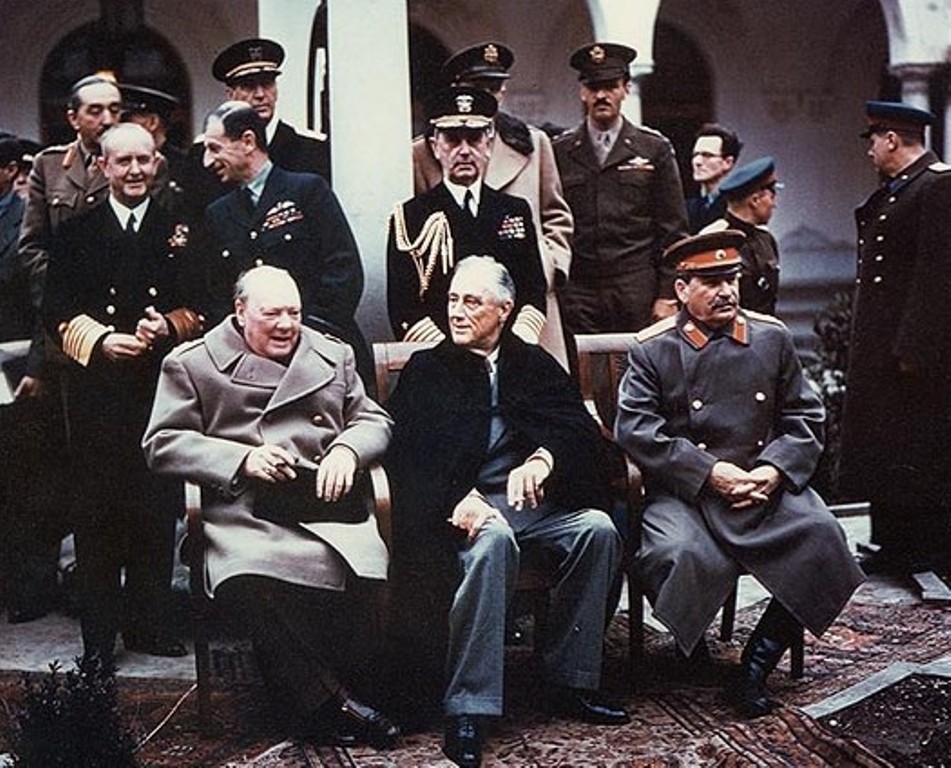
After the end of the war, Labour won the British election in the summer of 1945 and Churchill was replaced as Prime Minister by Clement Attlee. As Leader of the Opposition, he made a series of public appearances warning the Western world of the threat of communism and the danger from the USSR. In a famous speech at Fulton University in the US, he first used the (originally Goebbels') term 'Iron Curtain', which he said was being lowered across Europe.
In 1951 the Conservatives won the election and Churchill returned to the Prime Minister's chair. New difficulties arose in foreign policy as the British Empire decolonised and the Cold War escalated. At this time Churchill was involved in the creation of a new Europe and supported the process of European integration. One of the three main buildings of the European Union in Strasbourg bears his name in his memory.
In 1953 he received the Nobel Prize in Literature for his extensive six-volume historical work World War II. From his youth he was a prolific writer, writing at times when he held no political office. His first book River War he wrote in 1898 about the fighting in Sudan, in which he expressed negative views about Islam and Muslims. He is also the author of an autobiography, in which he describes his adventurous years as an officer and war correspondent, and a four-volume history of the English-speaking peoples. On the advice of his wife, he began painting pictures in 1915 to escape the Depression. He completed more than 500 paintings, most of which are in museums or private collections.
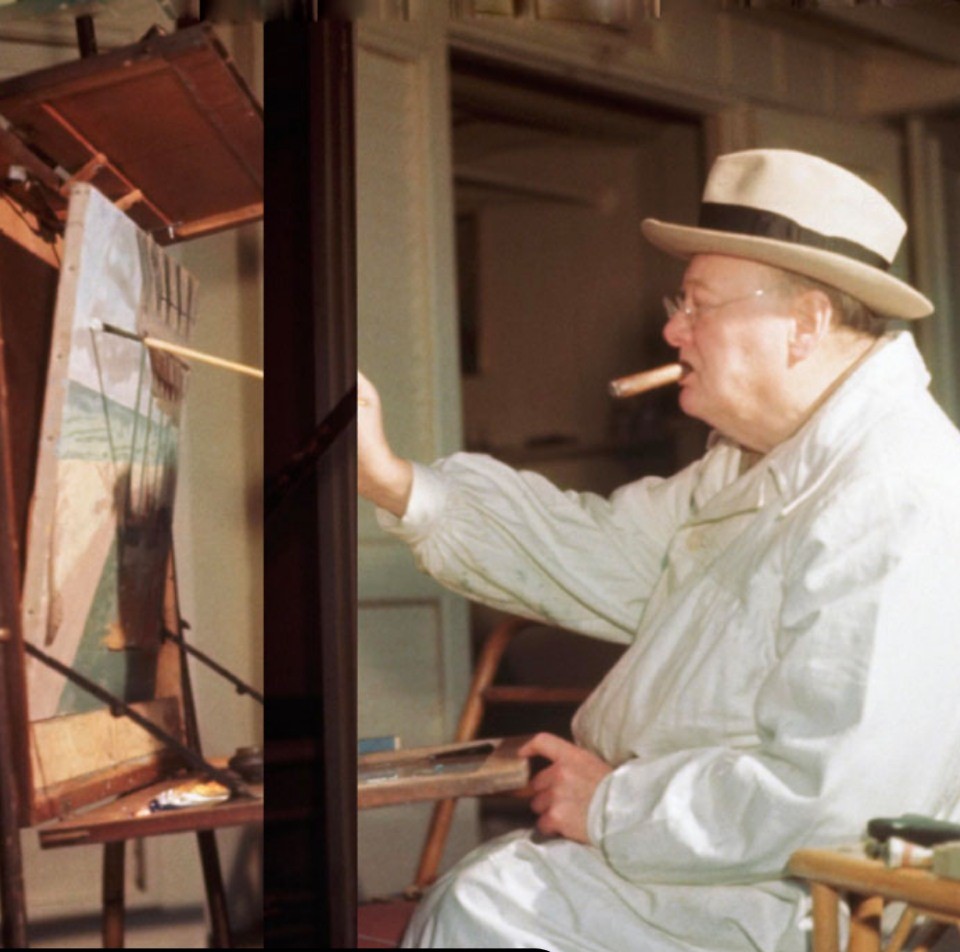
His deteriorating health forced him to resign as Prime Minister in April 1955. His successor was Foreign Secretary Anthony Eden.
Winston Churchill died after a recurrent stroke on 24 January 1965 in London at the age of 90. He lived to this venerable age despite the fact that his lifestyle was largely unhealthy - he smoked ten cigars a day, drank a bottle of scotch and exercised minimally. His body was displayed in Westminster for three days after his death, the ceremony taking place in St Paul's Cathedral. His funeral was the first state funeral to honour a non-royal. He was buried according to his wishes in the village of Bladon near Oxford.
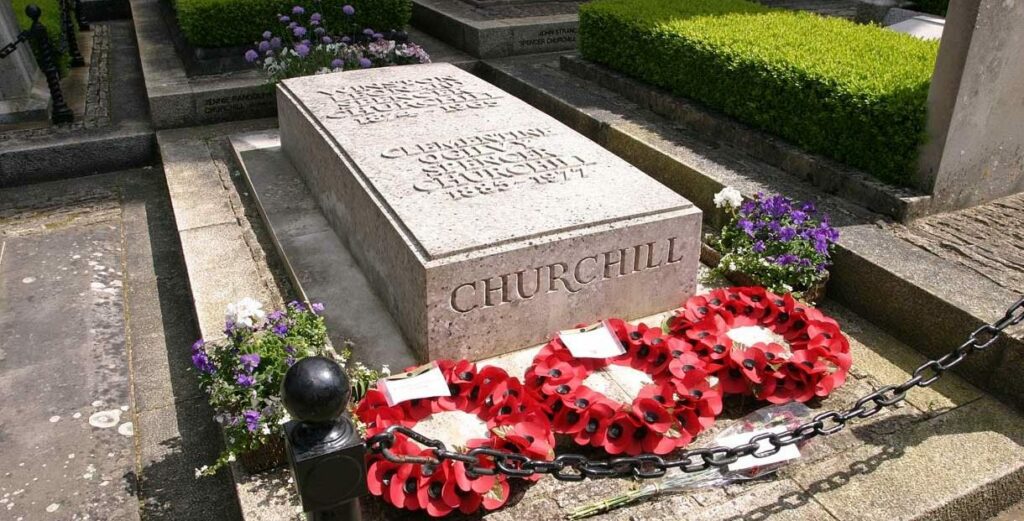
In 2014, Czech President Miloš Zeman awarded him the Order of the White Lion First Class in memoriam. The highest Czech state award was received by the politician's grandson, British MP Nicholas Soames.
When the BBC ran a poll in 2002 to find the greatest Briton of all time, Sir Winston Churchill won by a wide margin.
Gnews.cz / Facebook - Jana Černá


